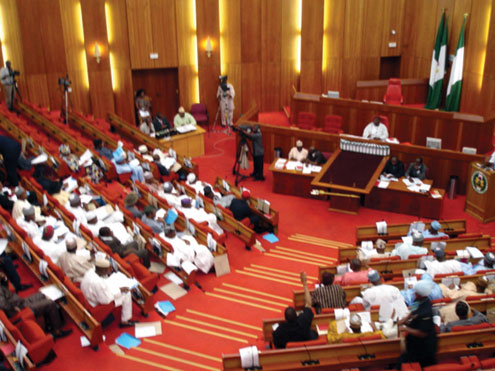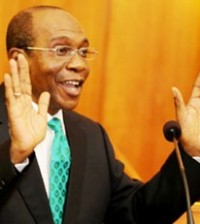MPR review: Contraction in real sector lending likely – Afrinvest
The recent upward review on the Monetary Policy Rate (MPR) by the Central Bank of Nigeria (CBN) will have an effect on lending rates with further restrictions to net private sector credit flows, in addition to the narrowing spread on returns and moderation of yields on fixed income securities.
Managing Director, Afrinvest West Africa, Mr. Ike Chioke revealed this to Vanguard after the launch of Businessday Afrinvest 30 index , saying, “ in the short-term, we believe this will translate to excessive contraction in real sector lending but aid the management of expected negative inflationary pressure as a result of moderated liquidity within the system.
However, we are of the opinion that government policies should focus more on achieving sustainable macroeconomic stability by curbing excessive short term spending and increasing investment in critical infrastructure.”
He stressed that the extension of the interbank guarantee implies that the CBN intends to continue to maintain the level of confidence in the interbank market to mitigate counter party risk, especially as it relates to rescued banks which are currently undergoing recapitalization.
According to him, “this should be reversed as soon as negotiations among banks on possible mergers and acquisitions are concluded. Overall, we are of the opinion that the CBN’s monetary policy decisions are largely counter-inflationary, with attendant restriction in credit growth.
We believe monetary policy tightening is imperative, in the face of rising global commodity and fuel prices, as well as expansionary fiscal policy in 2011. Expected increase in domestic energy costs and public sector wages also remain potent short term inflationary threats. However, the need to make credit accessible to the private sector remains a key issue. With a higher interest rate environment, we would expect bond yields across all tenors to adjust upwards, while savings deposit rates may also respond to a higher benchmark rate.
“We also expect the increase in the MPR to reduce speculative demand for the Dollar, which can be partly attributed to the excess liquidity in the system spurred by a low interest rate environment. This has put undue pressure on the Naira.
On the one hand, the hike in the MPR is expected reduce liquidity-induced Dollar demand. On the other hand, a higher benchmark rate will further reduce the propensity to hold Dollar position at the expense of the domestic currency. This should help ease the pressure on the Naira.”
It should be noted that the MPR was increased by 100 basis points to 7.50 per cent from 6.5 per cent while maintaining the symmetric 200 basis points corridor around the MPR.T h e g u a r a n t e e o n interbank transactions and on foreign credit lines were extended by 3 months, from (June 30 – September 2011 ).
The Monetary Policy Committee (MPC) of the CBN met on the 21st and 22nd of March 2011. The overriding theme of the decisions by the MPC is to manage the liquidity position with the aim of achieving single-digit inflation. In a swift response to government’s expansionary fiscal stance for 2011, as well as lingering pressure on the Naira, the MPC raised the benchmark rate by 100bps, the highest increase since 2009.
Source : Vanquard








